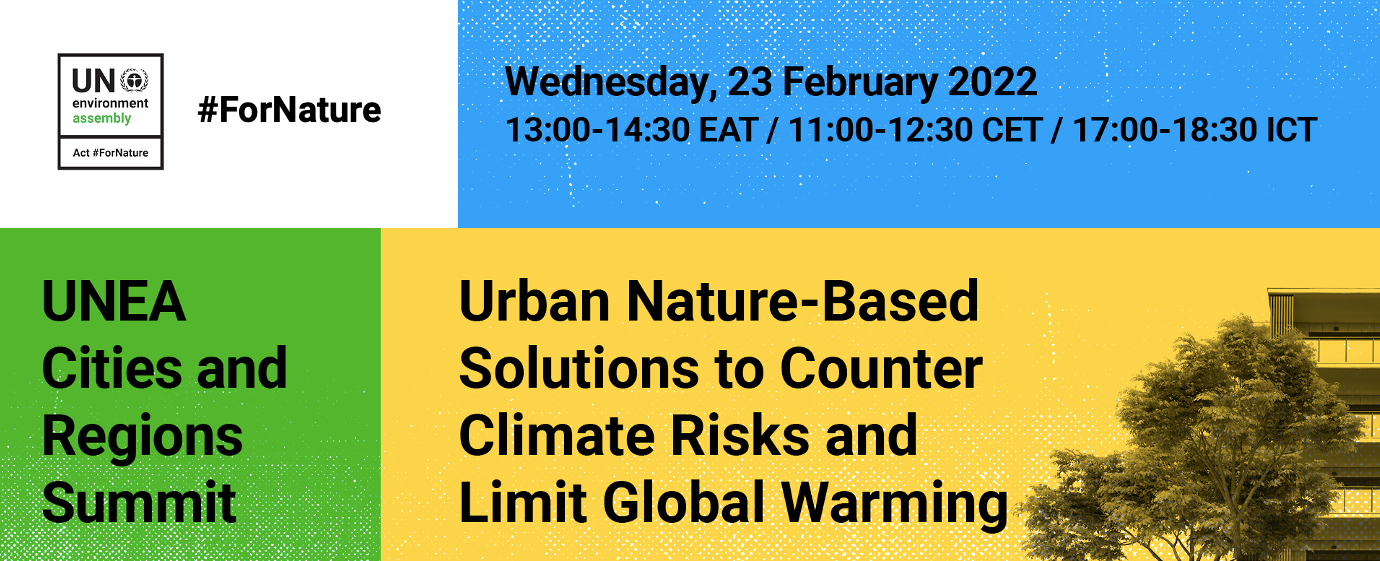The second UN Environment Assembly (UNEA) Cities and Regions Summit challenges us to see cities as champions of nature and accelerators of a sustainable future. Experts and city leaders will speak about the value of nature-positive strategies in rethinking the way cities are planned, and how to scale up action for nature. Various CitiesWithNature partner organisations, such as ICLEI, WWF and IUCN, are involved in the summit, as well as CitiesWithNature cities such as Cape Town.

Join virtually for a dedicated session on “Urban Nature-Based Solutions to Counter Climate Risks and Limit Global Warming”. Cool Coalition partners will discuss how they are using nature to beat the heat and achieve a sustainable, resilient urban future.
Speakers include:
- Kunal Kumar, Joint Secretary, Ministry of Housing and Urban Affairs, India
- Rebecca Pow MP, Minister for Nature Recovery and the Domestic Environment, UK
- Dieudonné Bantsimba, Mayor of Brazzaville, Republic of the Congo
- Geordin Hill-Lewis, Executive Mayor of the Cape Town, South Africa
- Eleni (Lenio) Myrivili, Chief Heat Officer, City of Athens, Greece
- Supriya Sahu, Principal Secretary, Environment, Climate Change & Forest, Tamil Nadu
- Ming Jiang, Deputy Director, Development & Reform Commission, Chengdu City, China
- Jennifer Lenhart, Global Lead, WWF Cities
- Stewart Maginnis, Deputy Director General, IUCN
- Kongjian Yu, Professor, Peking College of Architecture and Landscape Architecture
- Andy Deacon, Acting Managing Director, Global Covenant of Mayors
What is the UN Environment Assembly (UNEA)?
The United Nations Environment Assembly, the world’s highest-level decision-making body on the environment, is holding its two-yearly meeting from 28 February to 2 March 2022. The Environment Assembly is the world’s highest-level decision-making body on the environment. It addresses the critical environmental challenges facing the world today. Understanding these challenges and preserving and rehabilitating our environment is at the heart of the 2030 Agenda for Sustainable Development.
The Environment Assembly meets to set priorities for global environmental policies and develop international environmental law. Through its resolutions and calls to action, the Assembly provides leadership and catalyses intergovernmental action on the environment. Decision-making requires broad participation, which is why the Assembly provides an opportunity for all peoples to help design solutions for our planet’s health.